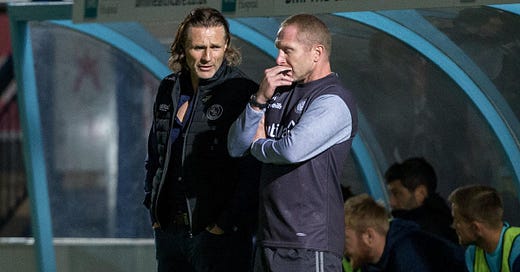Anthony Stewart’s header hits the back of the net. He peels away to celebrate, his teammates in close attendance. They all know the importance of the goal, which will set the club on course for promotion to the Championship. For the first time in its 133-year history, Wycombe will be playing in the second tier of English football.
On the touchline, Ric…
Keep reading with a 7-day free trial
Subscribe to The Mind Room to keep reading this post and get 7 days of free access to the full post archives.



